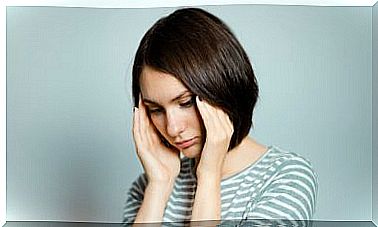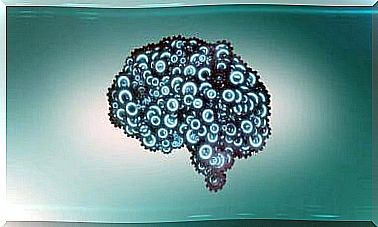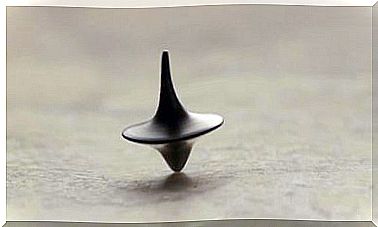How A Depressed Person Perceives The World

For those who have never suffered from depression, it is difficult to understand how a depressed person perceives the world. There are expressions such as “I see everything gray” that we usually use when we are down. But what if I told you that these sayings are literal and not just metaphors?
The reality is that perceptual changes occur both cognitively and physiologically during depression. The way of perceiving the world of a depressed person is, really, different from that of healthy people. Here are the findings of various investigations in this regard.
How does a depressed person perceive the world?
Gray vision
An investigation was carried out to try to determine the relationship between depressive pictures and the perception of colors. To do this, they analyzed the response of the retina to the contrast between black and white. Both the control group of individuals without pathology and that of depressed people were shown a board with different shades of gray.
The scientists were varying their position between the extremes of white and black in order to document the greater or lesser activation of retinal cells in relation to these stimuli. The results undeniably showed that depressed people have a different perception.
People with depression showed a significant loss of contrast in the retina, compared to the healthy control group. What does this mean? That people with depression perceive colors with less brightness and intensity, as if a gray crystal was present in front of their eyes.
The findings were so decisive that the researchers were able to distinguish between healthy and depressed individuals using the activation of the retina as the only indicator. It is believed that the origin of this discrepancy lies in the lower release of dopamine in depressed people, this substance being responsible for activating the cells of the retina.

Faint smells
On the other hand, the relationship between depression and smell has been investigated. Several studies have presented various fragrances to depressed people as well as healthy individuals, finding significant differences. The greatest of these is the lower intensity perceived in odors by people with depression.
Compared to the control group, depressed people have more difficulty differentiating between different levels of odor intensity. This seems to be associated with the fact that, during depression, the neurogenesis process slows down significantly. Due to this, the amount of mitral cells located in the bulb of our brain decreases, which is related to smell.
Interestingly, individuals with depression have also been found to be less sensitive to pleasant smells. They even qualify as bad smells aromas such as vanilla or cinnamon. Since it has been proven that this trend continues even after recovery, the possibility of using it as a possible marker of relapses is being considered.

Depressive realism?
Some studies analyzed the relationship between depression and the ability to determine contingencies. People with depression and healthy individuals were asked to press a button to try and control the turning on and off of a light. At the end, they were asked what degree of control they believed they had over said situation.
Depressed people were found to have a more realistic perception, while healthy people fell under the so-called “illusion of control”, thinking that they were managing the contingencies of the situation when they really were not. This is where the so-called “depressive realism” arose, referring to the fact that people with depression were not affected by optimistic expectations.
However, subsequent studies have shown that the key to its accurate perception is not depression, but passivity. Depressed people are more passive when it comes to pressing the button compared to healthy individuals who press it more. The lower number of keystrokes allows to determine the contingencies with more accuracy, whether the person is depressed or not.
It has thus been proven that the way a depressed person perceives the world is not only different on a cognitive level. They also have significantly different sensory perception from healthy people.









